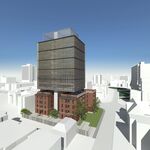js97
Senior Member
As a general topic, is there ever a solution?
There are plenty of posters here that believe the solution is to build more public housing, but when one takes a look at the size of the waiting list (50k?), you quickly realise that solution is as improbable and cost prohibit as building subways across the city.
For those that continually decry about more public housing, have you ever considered a multi-pronged, more pragmatic solutions to the problem?
Sunset clauses to encourage people to move OUT of public housing? To create new spots from existing units
Economic policies to help those get off? To reduce the demand
Stipulations on additional children for those residents? If you can't afford to pay for your existing children, why have more?
Mandatory labour contribution for those that are living in Public Housing? Contribute to paintin, landscaping etc etc.
I almost feel like if you're on a waiting list 'more than 3 years' you've managed to survive that long, why would you need it?
There are plenty of posters here that believe the solution is to build more public housing, but when one takes a look at the size of the waiting list (50k?), you quickly realise that solution is as improbable and cost prohibit as building subways across the city.
For those that continually decry about more public housing, have you ever considered a multi-pronged, more pragmatic solutions to the problem?
Sunset clauses to encourage people to move OUT of public housing? To create new spots from existing units
Economic policies to help those get off? To reduce the demand
Stipulations on additional children for those residents? If you can't afford to pay for your existing children, why have more?
Mandatory labour contribution for those that are living in Public Housing? Contribute to paintin, landscaping etc etc.
I almost feel like if you're on a waiting list 'more than 3 years' you've managed to survive that long, why would you need it?




